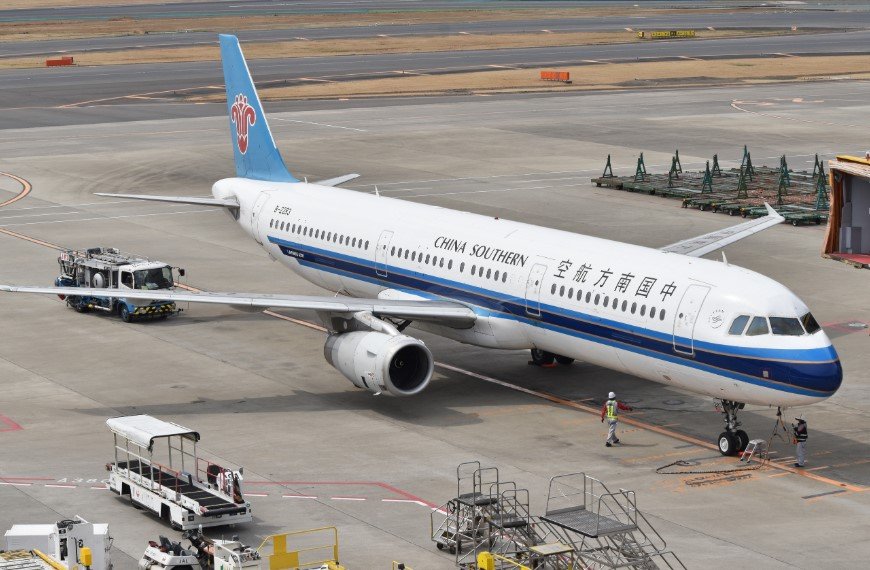Europe’s Airbus is making a big bet on China’s sustainable aviation fuel (SAF) sector, aiming to ride the wave of green energy momentum and tap into the country’s unique strengths. The plan? To help China build SAF into a serious, thriving industry that could reshape how planes take to the skies.
The aircraft giant sees China as a natural partner. It’s the single biggest market for Airbus, and with China’s rich resources and government backing, the timing feels right to accelerate the shift away from fossil fuels.
China’s SAF Edge: Resources, Policy, and Production Muscle
Claire Kauffmann, Airbus’ head of SAF and carbon dioxide removal, is clear: SAF is a game changer. “It can cut carbon emissions by about 80 percent compared to traditional jet fuel across its lifecycle,” she said. That’s massive for an industry often criticized for its heavy carbon footprint.
What makes China stand out? It’s not just one thing, but a combo of advantages. For starters, China has abundant feedstock resources that can be used to produce SAF. Think of it as the raw materials needed to churn out this cleaner fuel. Couple that with a rapidly growing renewable energy sector — wind, solar, bioenergy — and you’ve got the foundation for sustainable fuel production.
But it’s not just about nature’s bounty. China’s manufacturing muscle is world-renowned. Airbus points to the country’s strong production capacity and efficiency as key reasons why it’s such a promising place for SAF development. Throw in unified government policies and a business environment that’s stable and forward-looking, and you’ve got an ecosystem ripe for long-term growth.

Airbus’ Growing Footprint: Beyond Fuel, Into Factories
This year marks four decades since Airbus first set up shop in China. Over that time, the company’s footprint has expanded well beyond selling planes.
A notable recent move is the ramp-up of final assembly capacity for the A320 aircraft in Tianjin. Airbus is adding a second assembly line, with the new facility slated to open early next year. This isn’t just about meeting demand. It’s a clear sign Airbus is doubling down on local production and partnerships.
Why does this matter? By boosting local assembly, Airbus can reduce costs, speed up delivery, and strengthen ties with Chinese suppliers and the aviation ecosystem. It’s all part of the bigger picture — supporting a sustainable aviation future rooted in China.
What’s Next? Challenges and Opportunities
No doubt, the SAF journey isn’t a walk in the park. There are hurdles, from scaling up production to managing costs. SAF still tends to be pricier than traditional jet fuel, which makes wide adoption tricky.
Yet, the potential rewards are huge. The aviation sector faces mounting pressure to slash emissions. SAF offers a tangible way to make a dent, and China’s ability to ramp production could set a new standard globally.
It’s a balancing act. Airbus and its Chinese partners have to figure out how to boost SAF supply, keep costs manageable, and convince airlines and regulators to make the switch.
Quick Look: China’s SAF Production Outlook (Estimates)
| Aspect | Data/Estimate |
|---|---|
| Current SAF production | Under 50,000 tons per year |
| Estimated 2030 target | Over 1 million tons per year |
| Reduction in carbon emissions | Up to 80% vs fossil fuels |
| Key feedstock sources | Agricultural waste, bioenergy |
The numbers show the ambitious scale of China’s SAF goals. From a modest base today, the plan is to grow production exponentially by the end of the decade. If successful, this could reshape the entire Asia-Pacific aviation market.
Why Airbus is Betting on China’s Green Future
It’s about more than just planes or profits. For Airbus, supporting China’s SAF sector aligns with a broader mission — pushing aviation toward sustainability. The company’s global reputation hinges increasingly on how well it can drive green innovation.
And China? Well, it’s proving to be an essential player in the global clean energy push. Airbus’ commitment to this market isn’t just smart business — it’s a sign of the times.
By investing in factories, working hand-in-hand with Chinese suppliers, and championing SAF, Airbus is staking its claim on the future of flight. It’s a bet on a cleaner sky and a new chapter in Sino-European aviation ties.








